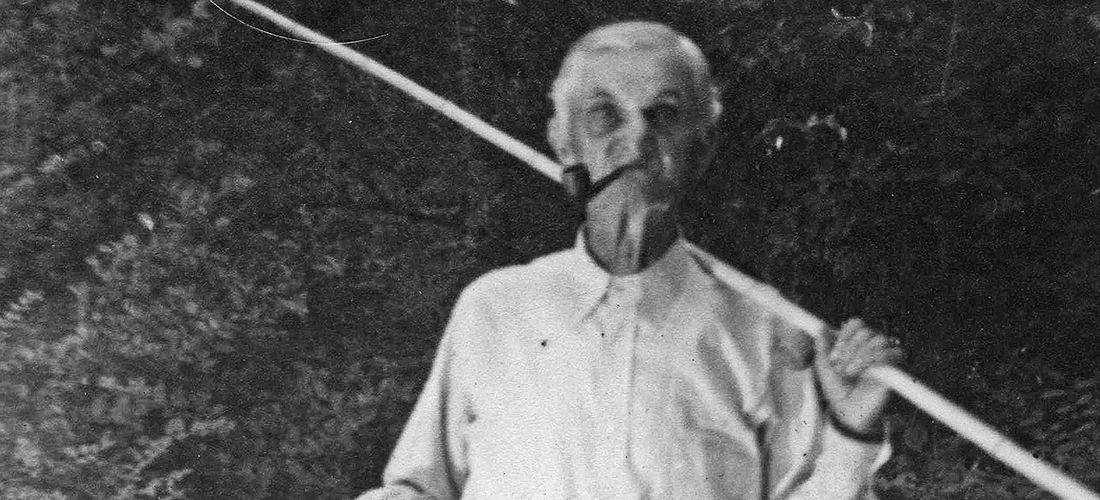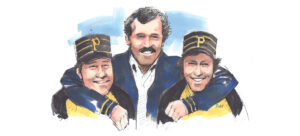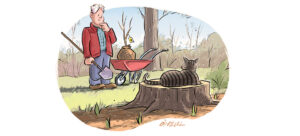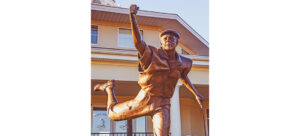
Pa and the Fish
Reaching back to the 19th century
By Bill Fields
I love to ask people what year my maternal grandfather was born. It is a straightforward question, but no one has ever come within 25 years of a correct answer.
People often say 1900, 1910 or 1920. I’ve gotten responses ranging from 1890 to 1930, the latter making me think the respondent is worse than I am at math. As a clue, I’ll tell them when I came into the world. That doesn’t help either.
No one has come close to pegging his birth year, 1861.
B.L. Henderson was born a couple of weeks before the Civil War began that spring. He lived nearly half of his life in the 19th century, when gold was being mined in his native Montgomery County.
To be fair, I used to get his history wrong too — but in a different way. “Pa,” as his children and grandchildren called him, was said to have been born March 28, 1860. His simple gravestone in Jackson Springs, where he lived the last third of his life, says so. So does his obituary from the summer of 1954, five years before my birth.
But my grandfather and his twin sister aren’t listed in the 1860 U.S. Census conducted in the summer of that year. They show up in later surveys done every decade with ages indicating they were born in 1861.
People have a hard time believing it. I did as well, even though I knew B.L. was in his 40s and my grandmother, Daisy, was in her teens when they married in 1908, and that he was 62 when my mother was born.
A man born when my grandfather was had a life expectancy of about 40 years, but if someone could avoid the diseases that took people young, you could live a long life like he did. He was lucky.
Growing up, I knew him as the man with the big fish. There was an 8×10 picture on my mother’s wall of a white-haired gentleman holding a largemouth bass, pipe in his mouth and cane pole over his shoulder. One of Mom’s memories is going fishing with him and being nervous when he stood up in the rowboat, but there was never a man overboard.
When I got older, I was less fascinated by the lunker bass he had caught than the hair — white yet plentiful — he still had as an old man given what they say about heredity and hair loss. As I near my grandfather’s age at the time my Mom was born, so far, so good.
The photo of Pa as an elderly fisherman is one of the few fragments of information I know about him. He worked on his family’s farm and later owned a sawmill, which would have made him a “catch” for Ma-Ma. He eventually owned a filling station down the hill from his home. (I don’t know for sure, but suspect he also might have spent some time at the Henderson gold mine in his home community of Eldorado.)
I have a couple of his possessions: a railroad pocket watch I’d bet he was carrying when he proudly posed with that bass; a token for one dollar in merchandise from his business in Ellerbe (though the town name is missing an “l” on the half-dollar sized coin); a tin shaving cup with a dirigible painted on the side.
The items are as close to him as I will get. My older sisters were alive for Pa’s last years but have scant memories. Dianne recalls being in his home after his death, Pa’s body in the parlor for viewing as was still custom in those days.
“Touch his forehead so you won’t have dreams about him,” an adult advised her.
She didn’t touch him, and I don’t dream about him. Yet I think about him often. And the older I get, I can see a bit of myself in the fisherman with a pipe. PS
Southern Pines native Bill Fields, who writes about golf and other things, moved north in 1986 but hasn’t lost his accent.





